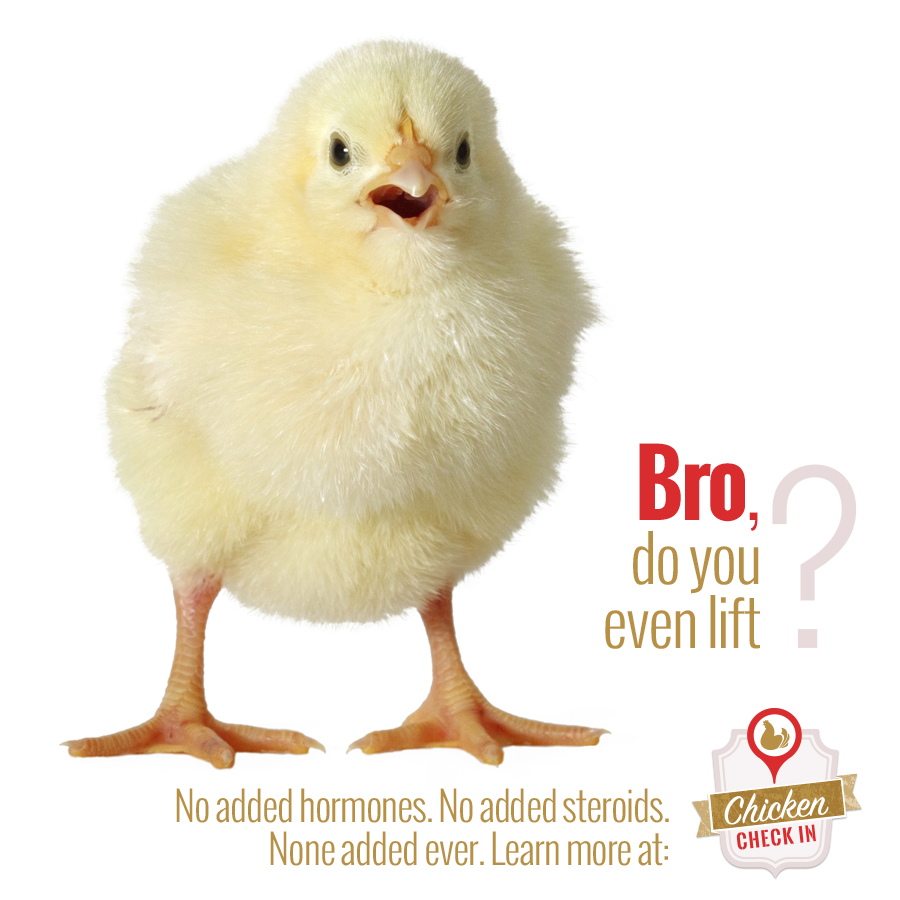Hormones: Should I look for chicken that is labeled as having no added hormones?
You might be surprised to learn that there are no artificial or added hormones used in the production of U.S. chicken. The use of hormones is expressly forbidden by law by the U.S. Food & Drug Administration (FDA). This label on a package of chicken lead you to believe that the product is different or healthier than similar products without that label, but all chicken products sold in the United States must be free of added or artificial hormones.
In fact, labels that read: “raised without hormones” or “no hormones added” must also include a statement saying that no hormones are used in the production of any poultry raised in the United States.
So if you’re deciding between a package of chicken that says “no hormones added” and one that doesn’t, you can rest assured that neither of them do.
Even though adding hormones to chickens has been illegal in the United States since the 1950s, our 2015 nationwide survey revealed that 77 percent of Americans believe that chicken contains added hormones or steroids. One question we read frequently is:
If chickens aren’t raised with added hormones, why are chickens so big?
Today’s chickens are definitely bigger, but it’s not because of added hormones (and it’s not because of genetic modification, either). Modern chickens are raised larger and healthier through improvements in breeding, nutrition, veterinary care and bird health. In addition to providing broiler chickens (chicken raised for meat) with healthier nutrition, the use of vaccines and better living conditions have also improved chicken health and overall growth rate. All of these improvements mean that over the years, farmers have been able to raise bigger and healthier birds than ever before.
Learn more about the improvements in chicken breeding that have led to today’s bigger, healthier chickens in this FAQ on chicken size.
If you’re curious about what other labels you might find on packages of chicken mean, check out this infographic on common chicken labeling terms.
To download a PDF of this FAQ on broiler chicken labeling, click here.

